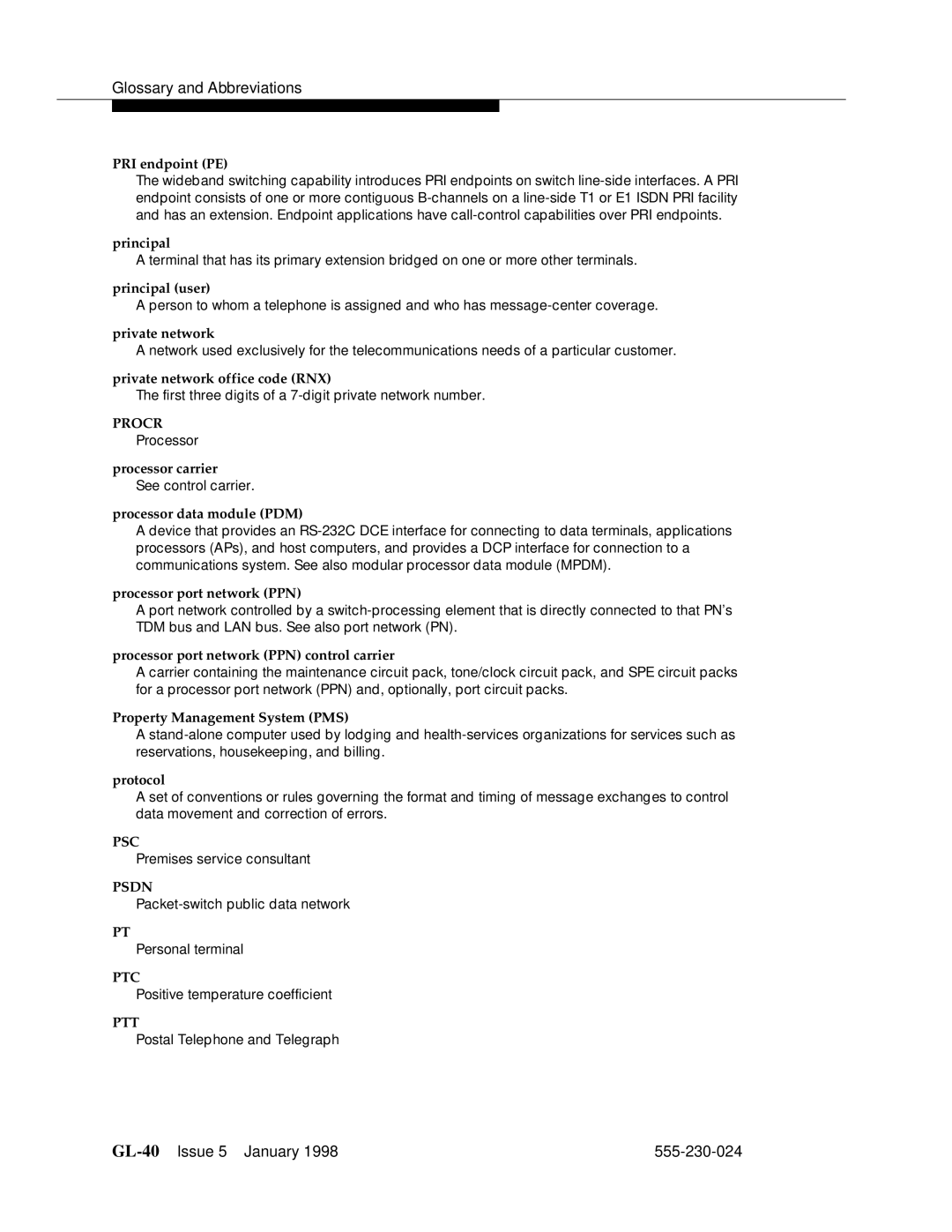Glossary and Abbreviations
PRI endpoint (PE)
The wideband switching capability introduces PRI endpoints on switch
principal
A terminal that has its primary extension bridged on one or more other terminals.
principal (user)
A person to whom a telephone is assigned and who has
private network
A network used exclusively for the telecommunications needs of a particular customer.
private network office code (RNX)
The first three digits of a
PROCR
Processor
processor carrier
See control carrier.
processor data module (PDM)
A device that provides an
processor port network (PPN)
A port network controlled by a
processor port network (PPN) control carrier
A carrier containing the maintenance circuit pack, tone/clock circuit pack, and SPE circuit packs for a processor port network (PPN) and, optionally, port circuit packs.
Property Management System (PMS)
A
protocol
A set of conventions or rules governing the format and timing of message exchanges to control data movement and correction of errors.
PSC
Premises service consultant
PSDN
PT
Personal terminal
PTC
Positive temperature coefficient
PTT
Postal Telephone and Telegraph
